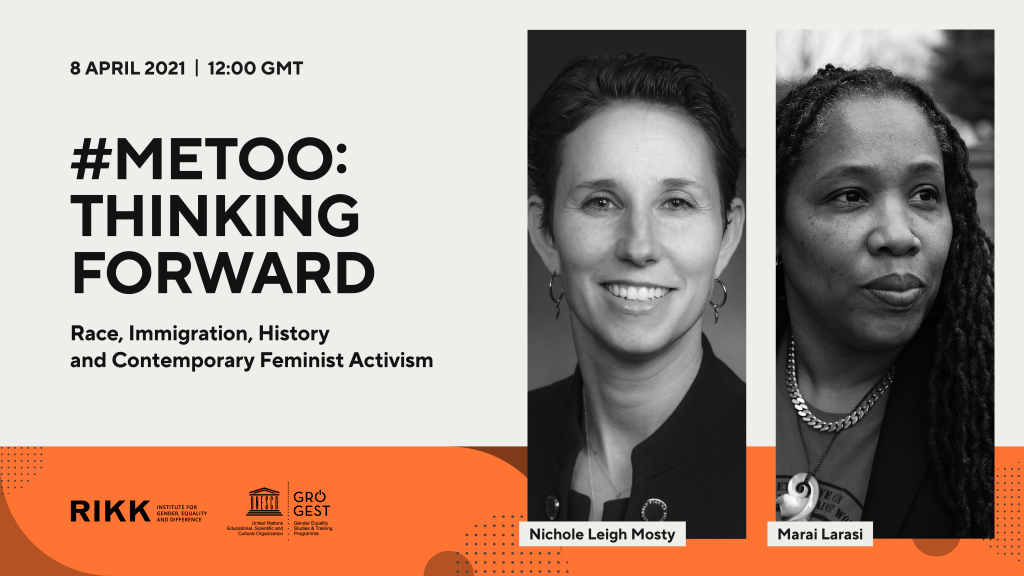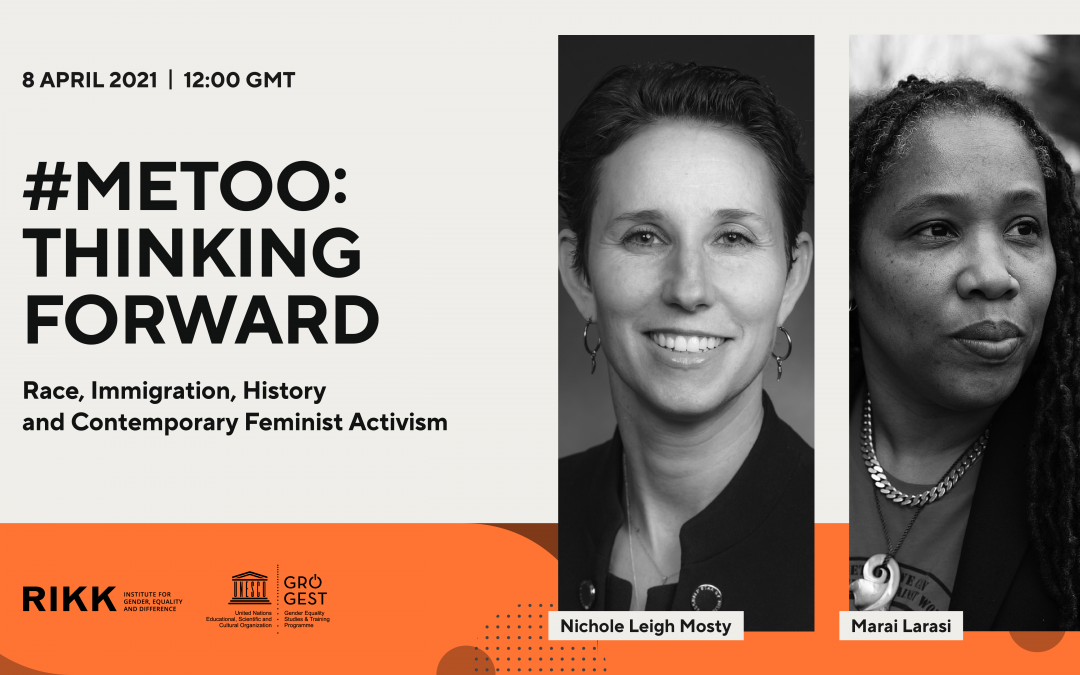In the fourth event in RIKK and GEST’s conversation series Marai Larasi and Nichole Leigh Mosty will discuss race, immigration, history and contemporary feminist activism. Marai Larasi is an Advocate, Community Organiser, Consultant and Educator. Nichole Leigh Mosty is Director of the Multicultural and Information Center in Iceland.
#MeToo: Thinking Ahead is the topic of the RIKK – Institute for Gender, Equality and Difference and Gender Equality Studies and Training (GEST) Programme conversation series in spring 2021. The series focuses on #MeToo, its gains as well as the challenges that remain in the fight against harassment, discrimination and violence. The series builds upon two recent books published on the movement, firstly an Icelandic issue of Fléttur, RIKK’s book series, and secondly The Routledge Handbook of the Politics of the #MeToo Movement, edited by Irma Erlingsdóttir, Director of RIKK and GEST, and Giti Chandra, Research Specialist at GEST.
The event will take place on Thursday 8 April at 12.00-13.00 GMT. The sessions are held on Zoom (https://eu01web.zoom.us/j/69712898240) and will be live-streamed on Facebook. Recordings of the sessions will be made available on RIKK’s website and the Youtube-Channel of the School of Humanities.
Event abstract:
Histories of racial and colonial oppression continue to come in the way of solidarities among women, creating uncomfortable alliances that do not stand the test of race, class, and nationality. In her notion of ‘Plantation Feminism’, Marai Larasi thinks through the challenges facing feminists and activists, emphasizing the importance of knowing, confronting, and resolving these historical fault lines that continue to divide women and movements in the present day.
“A cultural guide buddy system. I’m quite socially isolated. I have zero Icelandic friends – like real friends, who understand that I’m ‘different’…” Nichole Leigh Mosty will discuss how this perspective describes how many women of foreign origin experience assimilation into Icelandic society. Testimonials from women of foreign origin in the #MeToo bore witness to systemic, discrimination, segregation, and abuse allowing them to feel isolated and disconcerted. What types of support and solidarity can turn the tide to ensure there be no need for another #MeToo movement.

